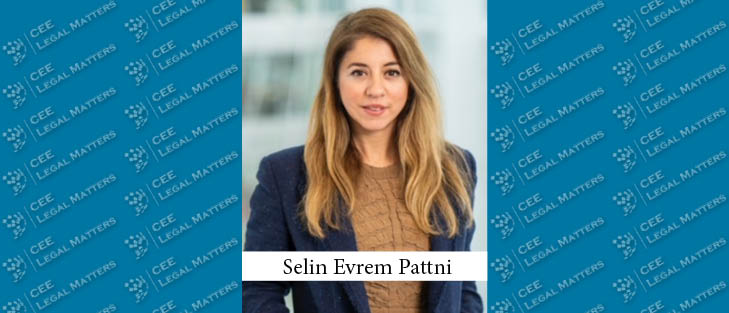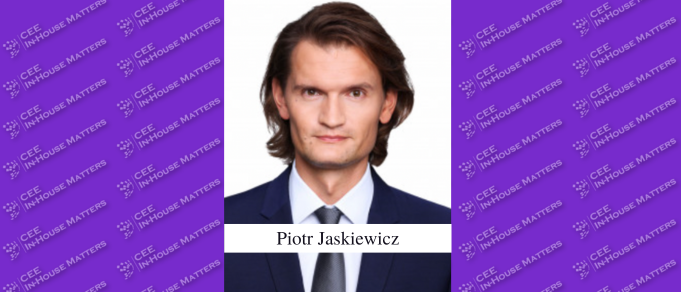Selin (Evrem) Pattni is the Head of Legal Global Purchasing and Supply Chain Operations of Henkel, and she is also on the Executive Committee of Henkel Global Supply Chain B.V. located in Amsterdam, the Netherlands. Selin reflects on her own career path and on strategies for training and developing her in-house team.
CEELM: What are, in your view, the most important skills for an in-house lawyer in your organization?
Pattni: My journey has taken me through various roles and countries, which has greatly influenced my perspective on the skills needed for an in-house lawyer. I am a qualified lawyer in Turkiye, having done my bachelor’s there and a master’s in Germany with a double major degree in International Business Law and Economics. I’ve worked in organizations like Ernst & Young, Carrefour Group, and since 2013 in Henkel, where I’m currently in a global role.
One key takeaway from my experience is the importance of adaptability and openness. It’s no longer about getting an education in one country and staying there. My generation broke that mold successfully and opened up the door for our young colleagues to have cross-country/regional experiences. As an in-house lawyer, you need to be adaptable, open to communication, ready to take feedback and have a practical way of thinking as a constant problem solver. It definitely requires an analytic approach. Education should never end for a professional – it’s a continuous development/learning process. I promised myself after my studies in Germany that I wouldn’t pursue a PhD to have an academic career, but as my roles evolved regionally and globally, I found that continuous learning is essential and doesn’t need to be necessarily academic in nature. An in-house counsel needs to learn frequently to understand different jurisdictions, new regulations, country-specific requirements, and new business models. You need to embrace a mindset that is always open to development, learning non-stop, and never thinking “I’m enough.”
Another crucial skill is understanding and respecting diversity. My culturally diverse background – being Armenian, born in Turkiye, and educated in a German school – has taught me the importance of tolerance and observation at a very young age. Every culture is unique, and you need time to adjust and adapt. This understanding is not just critical for business, but it’s also a life skill that helps in both personal and professional settings, especially when it comes to stakeholder management.
CEELM: Do you see any change in in-house counsel’s role in the multinational companies considering the last 10-15 years?
Pattni: Big time! Multinational companies are very much aware of the importance of risk prevention in recent years. This awareness changed the traditional in-house counsel role in the last 10-15 years. If you take my career as an example, I have been a part of regional and global executive committees as an important team player in the operational decision-making mechanism. I’m also leading our DE&I activities as a spokesperson, which is a very dear role for me. Briefly, we all have new roles on top of dealing with pure legal matters, as company directors, DE&I representatives, public affairs managers, board members, commercial advisors, compliance heads, data protection officers, auditors, and human rights officers (required by German Supply Chain Act). This change happened because of our strategic thinking, forward planning, proactive involvement, great communication skills, and excellent job at the risk assessment. Actually, for more information on this trend, you can take a look at my article available in the International In-house Counsel Journal in 2017 (Managing the In-House Counsel Function, Vol. 10 No. 39).
CEELM: What is your in-house legal function’s TNA (training needs assessment) methodology?
Pattni: Assessing the skills within the team isn’t just a periodic task (i.e., year-end or mid-year assessment process) – it’s something that needs to be observed every day. As the Global Head of Legal, one of my core responsibilities is to develop my team members to the point where they could replace me if necessary. This mindset creates a non-competitive, safe environment where everyone can grow. Especially from that perspective, Henkel is a great company that invests in its people tremendously. As an example, they sent me to the London School of Economics for a tailor-made executive program and recently to a high-level leadership training session in Germany. We have a very successful cooperation training with Bucerius Law School in Hamburg, which one of my team members recently visited for a two-year executive training on top of his work. This shows that the company is serious about developing its employees, rather than just pushing them to work without growth and get what they want only.
In addition to the yearly assessments, I conduct monthly feedback sessions with my team and other stakeholders from the business, which go both ways. In Henkel, we also have a 360-degree feedback process for higher management to ensure that we’re meeting standards and addressing new skill leadership requirements. With the constant changes in the market, it’s crucial to ensure that our team has the necessary skills to keep up which include digitalization, data security, analytics, sanctions, and tax rules. That’s why as Henkel we are committed to providing frequent training opportunities, whether it’s through conferences and/or specialized programs. In-house counsels shouldn’t focus solely on internal training but should also understand business models to support contract negotiations and day-to-day business. This requires a lot of business training, which some in-house counsels might avoid, but it’s essential to keep an eye on the market developments.
CEELM: How often do you assess skill gaps within the team?
Pattni: While there is a formal yearly assessment, as said I also hold frequent feedback sessions with my team. These sessions allow us to address skill gaps as they arise and ensure that the team is continuously developing. With the rapid pace of change in today’s business environment, it’s essential to frequently evaluate and improve the team’s skills. I highly appreciate it when my team members come up with a new learning opportunity. It is a teamwork and each chain of the team needs to be strong not just the Head of Legal.
CEELM: And what do you use to identify gaps within the team?
Pattni: To identify gaps, I use a combination of tools and methods. The 360-degree feedback system is particularly effective as it provides insights from various perspectives within the organization (vertical and horizontal way). I’m personally also very open to communication, so team members can easily approach me and express their needs. It is essential to create a safe space to hear the needs of your team and focus on what you can achieve more with a highly motivated team. Additionally, I focus on how well the team is adapting to new challenges brought by constant changes in the business market and legal world. This helps us pinpoint specific areas where further training or development might be needed.
CEELM: Do you prefer using internal or external tools for training? Why?
Pattni: We use both internal and external tools for training. For example, we work with law firms on both a retainer and project basis, and I highly value the general training sessions they offer on important topics. These sessions help us maintain a two-way relationship with the firms. Internally, Henkel offers various training programs that we utilize, but I also encourage my team to participate in external programs as I mentioned earlier. A mix of internal and external tools ensures that our team remains well-rounded and up-to-date with the latest developments.
CEELM: What have traditionally been the most effective learning tools you’ve deployed for your team?
Pattni: One of the most effective tools we’ve used is a closed database system where all contracts are archived. This system allows us to collect and manage data effectively, providing easy access to necessary information whenever needed. We’re very fortunate to have such systems in place for many years and have great data available. We also have a global contract management system and online training tools, including antitrust training. These tools are integral to our operations and ensure that our team is aligned globally, with access to consistent and up-to-date information.
CEELM: What, if any, tools do you use as a knowledge bank?
Pattni: Our knowledge bank primarily consists of the database system where all contracts are archived. This system is integrated with Henkel’s intranet, allowing us to manage and access data securely. We continuously update these systems to meet our needs, particularly in areas like data security and contract management. This global database system is a crucial part of our operations, enabling us to maintain consistency and accuracy across all our activities. We work with external service providers to update those systems based on our needs.
CEELM: What is the typical career path for a young lawyer joining your in-house team?
Pattni: My career has been quite atypical, involving both local, regional, and global roles across IMEA, Europe, and APAC regions. I had the chance to work in several countries and live there for 2-3 years to expand my experience. My journey with Henkel helped my personal growth on top of my career and I strongly believe that “outside of your comfort zone is where the magic happens.” Thus, I encourage young lawyers not to think of their careers in a typical, linear way. Please be brave, accept all possible challenges, and not be confined by borders or traditional career paths in the legal world. At Henkel, we offer incredible opportunities for growth, and I believe that multinational companies are increasingly recognizing that we can do more and develop ourselves to serve a world without boundaries. It is true that the sky is the limit, and adaptability is key to survival and success. This flexibility and openness to new experiences are what I hope to instill in young lawyers joining our team. You need to only compete with yourself to grow not with anyone else. This has been always my mindset while building my career.
Understanding the importance of a flexible working environment is also crucial for now and the next generations getting ready to enter the business. At Henkel, we’ve embraced flexibility, even before COVID-19, with a 60-40% home-office work ratio. Flexibility is important not just for productivity, but for our own and team’s mental health as well. We’re seeing more burnout cases around us, and as directors, it’s our responsibility to address this proactively and observe our colleagues frequently to ensure they are healthy psychically and mentally. If you feel exhausted, take a break – whether it’s going for a run in a park next to your house or having a coffee outside. It’s about creating an environment where people feel supported and can thrive together. It is a marathon, not a short run, and an easy target to achieve.
Change is essential for the growth of any person/organization, cultural transformation is a never-ending progress. One of my favorite quotes is from Einstein: “In order to understand ourselves, others, and the world around us, we need to be able to change and adapt our perspectives.” We need to change ourselves to grow and survive, especially in a world that is rapidly evolving.




















